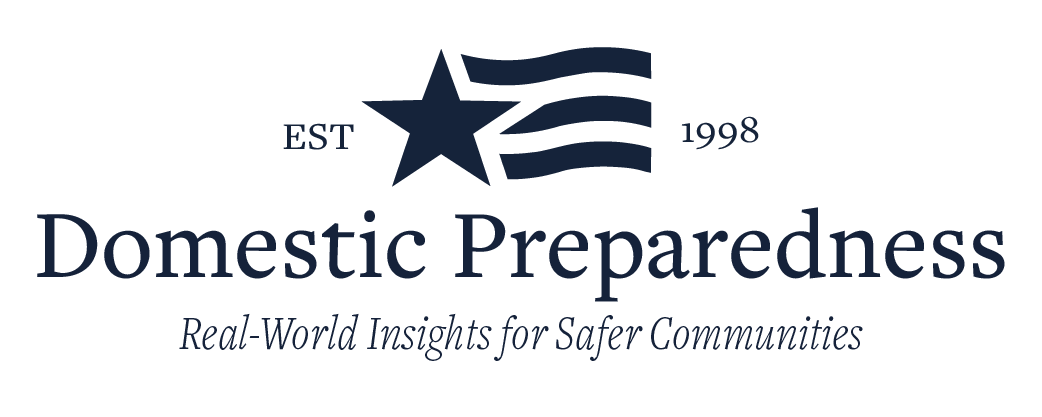Authors
Domestic Preparedness is a valuable information resource for emergency preparedness professionals across disciplines and jurisdictions. Created in 1998, Domestic Preparedness offers content – provided by practitioners and subject matter experts – to first responders, medical receivers, public health professionals, emergency planners, local-state-federal authorities, nongovernment organizations, and private sector professionals. Emergency preparedness and response practitioners from all disciplines are welcome to submit articles.
Submissions should include:
- Article draft (typically 750-1500 words in length), with as much depth as is possible in that amount of space;
- Relevant hyperlinks to additional reports, articles, etc.;
- Brief bio of the author (<200 words);
- High-resolution JPG of the author’s headshot in a separate file (>300 dpi JPG);
- Confirmation that the article has not been published, submitted, or posted elsewhere; and
- A photo or photo concept that corresponds with your topic.
Important links for authors:
Domestic Preparedness Style Guide & Rules for Writing
Writers should use the AP Stylebook for basic guidelines. If the AP Stylebook does not address the issue, please use the Chicago Manual of Style.
When writing for Domestic Preparedness, remember that the readership includes not only career members of the numerous disciplines that make up the nation’s domestic preparedness community (e.g., law enforcement officers, firefighters, emergency medical services providers, emergency managers, hospital staff, public health officers, hazmat specialists), but also mayors, governors, members of Congress (and of congressional committee staffs), and other decision-makers, who are not all conversant with the “insider” language used by working professionals. In short, do not use specialized terms, acronyms, and other language that may not be widely understood by a broad audience of career professionals in other homeland security communities.
Other “Official Rules” are simple, and most are self-explanatory:
- Articles must be nonpartisan and supported by relevant sources and statistics. No unsupported opinion pieces.
- Articles cannot promote specific products or services. No advertorials.
- Articles must be written in the third person. Do not, except in direct attributed quotes, use any of the following words in your copy: I, we, my, mine, us, our, you, or your.
- Do not editorialize, use contractions, try to amuse readers with witty comments, ask rhetorical questions, or use slang, colloquialisms, or casualisms.
- Do not quote anonymous sources.
- Do not use footnotes – if information is important enough to merit a footnote, it is important enough to work into the text of the article. However, hyperlinks to sources offering additional information are allowed and encouraged.
- Provide hyperlinked sources to support any quotes, statistics, and other information that requires attribution.
- Do not use nicknames; use a person’s full given name. In bylines, Domestic Preparedness uses the writer’s given name, rather than his/her nickname, but no rank, title, or office – all of which can be included in a biographical summary (<200 words) at the end of the article.
- If a person being quoted or written about has a rank or title, use it only once – after that, use his or her last name.
- Spell out each acronym the first time it is mentioned and insert the acronym (in parentheses) immediately after the first use. For example, the Department of Homeland Security (DHS).
- A co-author’s name may be included in a joint byline, but please provide a short biography and headshot for the co-author at the time the article is submitted.
- A working title and headings for the article should be included, but please remember that the publisher has the final say.
Most exceptions to the above are spelled out in the AP Stylebook. Domestic Preparedness uses a few other exceptions, mostly to be reader-friendly, and a few other unstated rules (e.g., on grammar and spelling) that will be followed at the publisher’s discretion.

